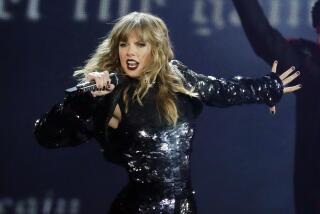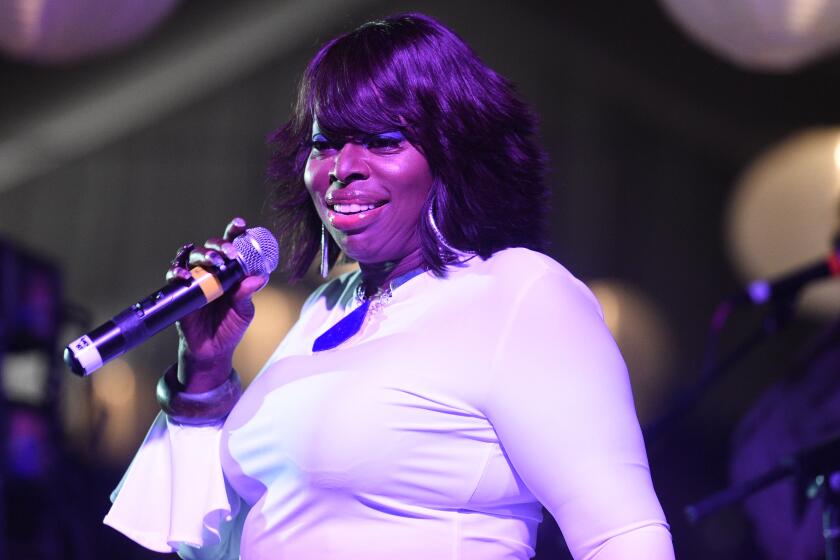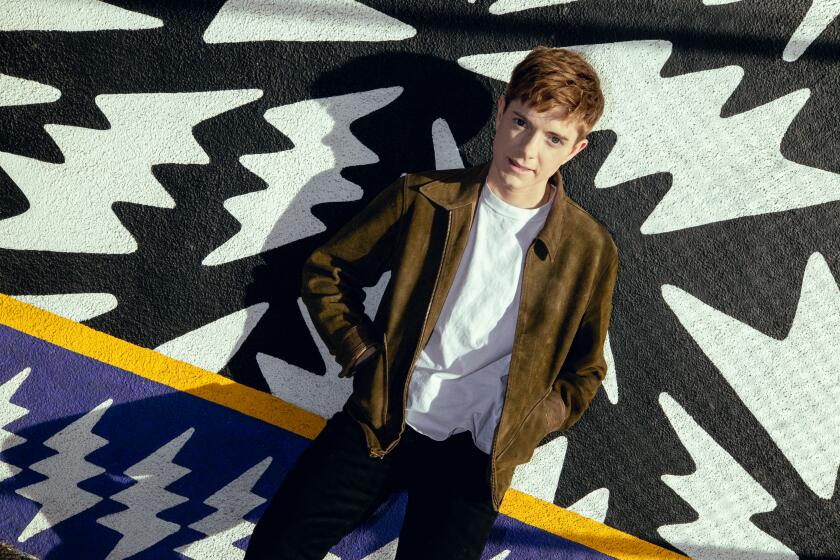Allyship or queerbaiting? How thirsty pop stars are courting LGBTQ audience
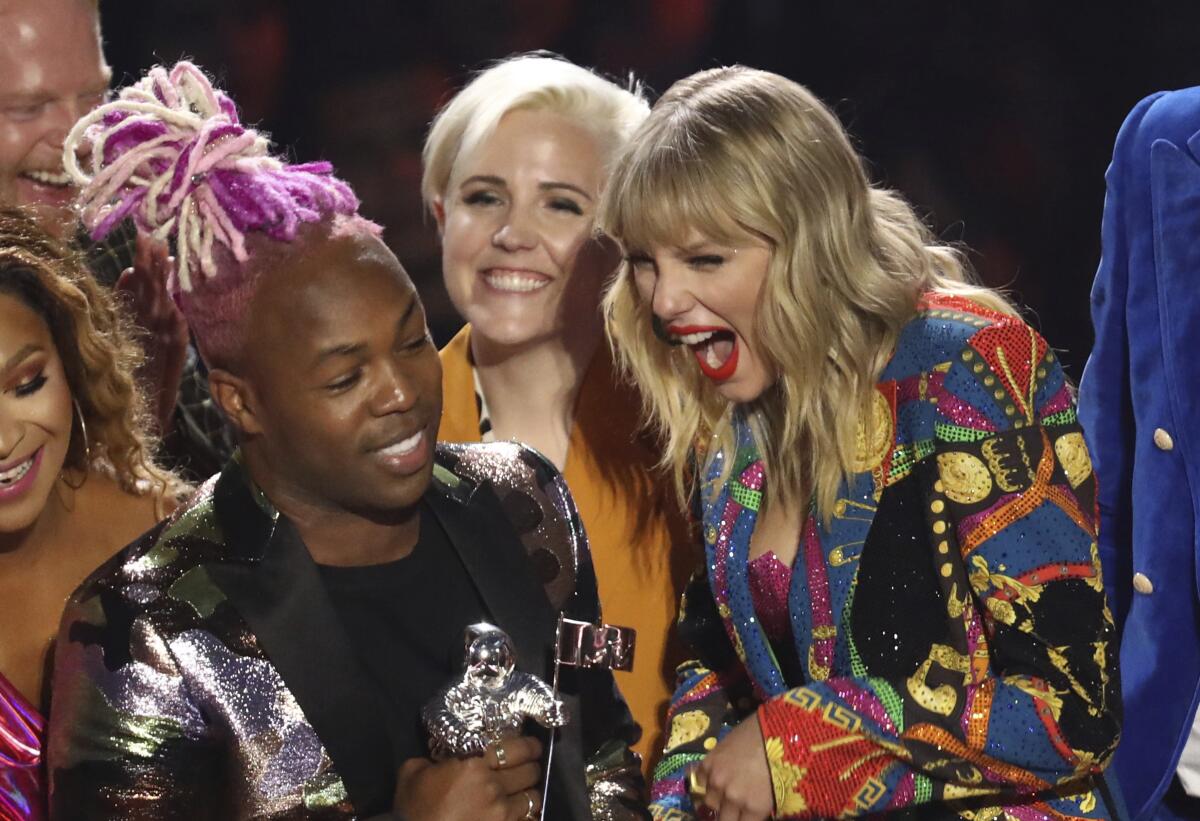
- Share via
Taylor Swift may be one of the defining singer-songwriters of her era, but subtle she is not. In late August, Swift opened the 2019 MTV Video Music Awards with a performance of her LGBTQ allyship single “You Need to Calm Down” that was essentially activism via skywriter. Complete with stadium-sized rainbows and giant pinwheels, she performed the track — in which she entreats listeners to give homophobes the cold shoulder — flanked by drag queens formerly of “RuPaul‘s Drag Race.”
The performance ended with a shout-out to the Equality Act, a federal bill that would ban anti-LGBTQ discrimination in housing and employment, in big, yellow CGI letters. If Swift didn’t fire Nancy Pelosi out of a sparkly cannon, it’s likely because the bit was cut for time.
Swift’s newish-found LGBTQ activism has made the singer a target of criticism since the track debuted in June, just in time for Pride Month. As one of our most business-minded pop stars, her advocacy for equality has been, for some, indistinguishable from a marketing push: Swift’s seventh studio album, “Lover,” was released Aug. 23, just days after the VMAs performance. The day after “You Need to Calm Down” dropped, she stopped by the famed Stonewall Inn in New York City’s West Village to surprise fans — and subtly remind them to download the single.
Witnessing one of the biggest pop stars in the world mix activism with capitalism while speaking out in favor of equality is a pretty good problem to have. It’s also an increasingly common one. As LGBTQ people gain greater visibility and acceptance in mainstream society, their cultural and financial capital has risen in kind. The National Gay and Lesbian Chamber of Commerce estimates that LGBTQ individuals contribute $1.7 trillion to the U.S. economy every year — which translates to a major marketing opportunity for both up-and-coming and established artists.
Pop stars, and, in particular, outsized female singers, have always had a special relationship with LGBTQ people, dating back to the days in which Judy Garland was so synonymous with her gay fans that the symbol of Pride is a rainbow. The backlash against Swift may be less about her than it is about an era in which that intimacy has often been exploited to further someone’s bottom line.
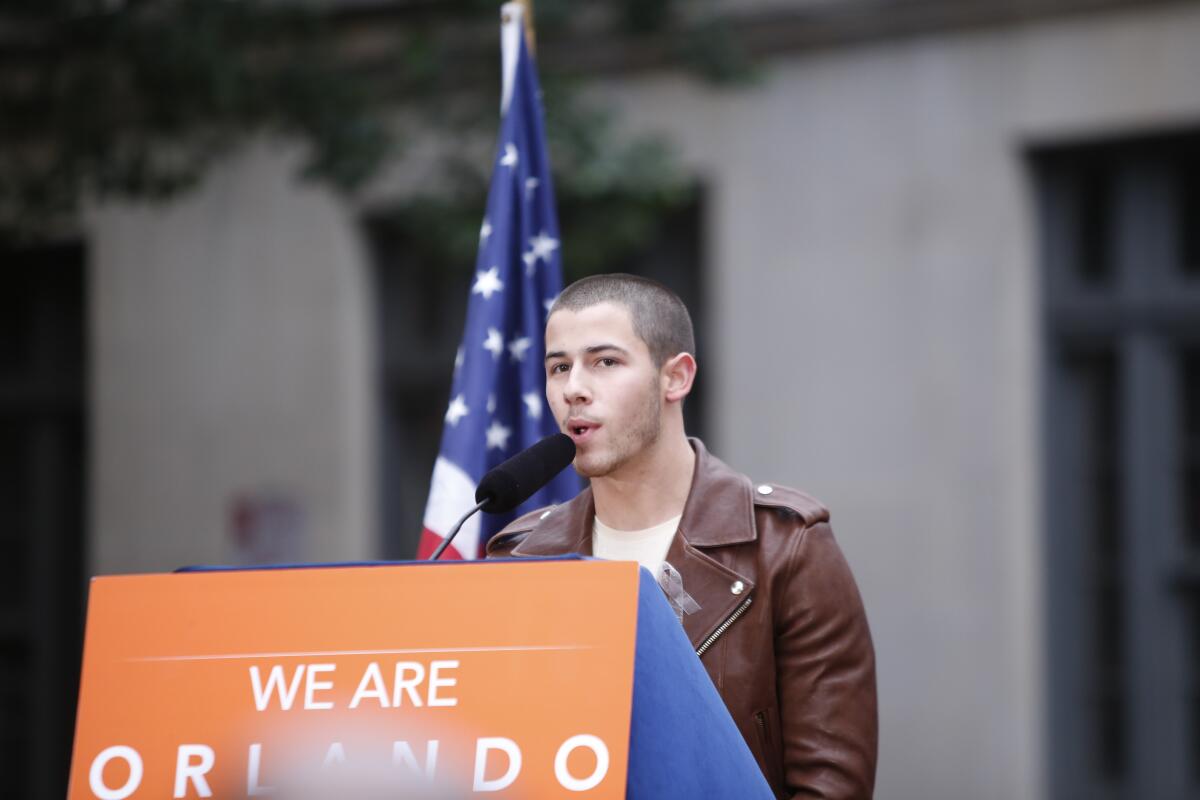
Twenty years ago, it would have been impossible to explain what Nick Jonas was doing at the Stonewall in June 2016.
Well before Swift made her own pit stop at the iconic LGBTQ landmark, the Jonas Brother addressed crowds gathered outside Stonewall to honor the 49 people killed during an attack on Pulse Nightclub, a gay bar in Orlando, Fla., just hours before. The singer gave a speech claiming his “heart broke” at the news, adding that his father taught him “that love is love and we are all equal.” The sentiments, while heartfelt, weren’t entirely altruistic: Jonas had released his third studio album, “Last Year Was Complicated,” three days before the speech.
Jonas, who was attempting, at the time, to assert himself as the heir to Justin Timberlake’s throne, became an unintentional poster boy for a concept that’s become increasingly referred to as “queerbaiting”: pandering to LGBTQ fans to boost sales or garner attention. After playing gay roles in two TV shows (“Scream Queens” and “Kingdom”), Jonas told the British tabloid the Sun around the same time as his Stonewall speech that he “would be lying” if he said he hadn’t had gay sex — because he’s done it on television.
Other music acts have also flirted with accusations of queerbaiting: from t.A.T.u, a briefly popular Russian duo that used faux lesbian romance as a viral marketing strategy, to Katy Perry, whose “I Kissed a Girl” professed that bicuriosity is OK if your boyfriend is into it. It’s not limited to pop music either: Shows including “Friends” and “L.A. Law” famously used the “Sweeps Week Lesbian Kiss” to draw in viewers at the most advertiser-friendly times of the year.
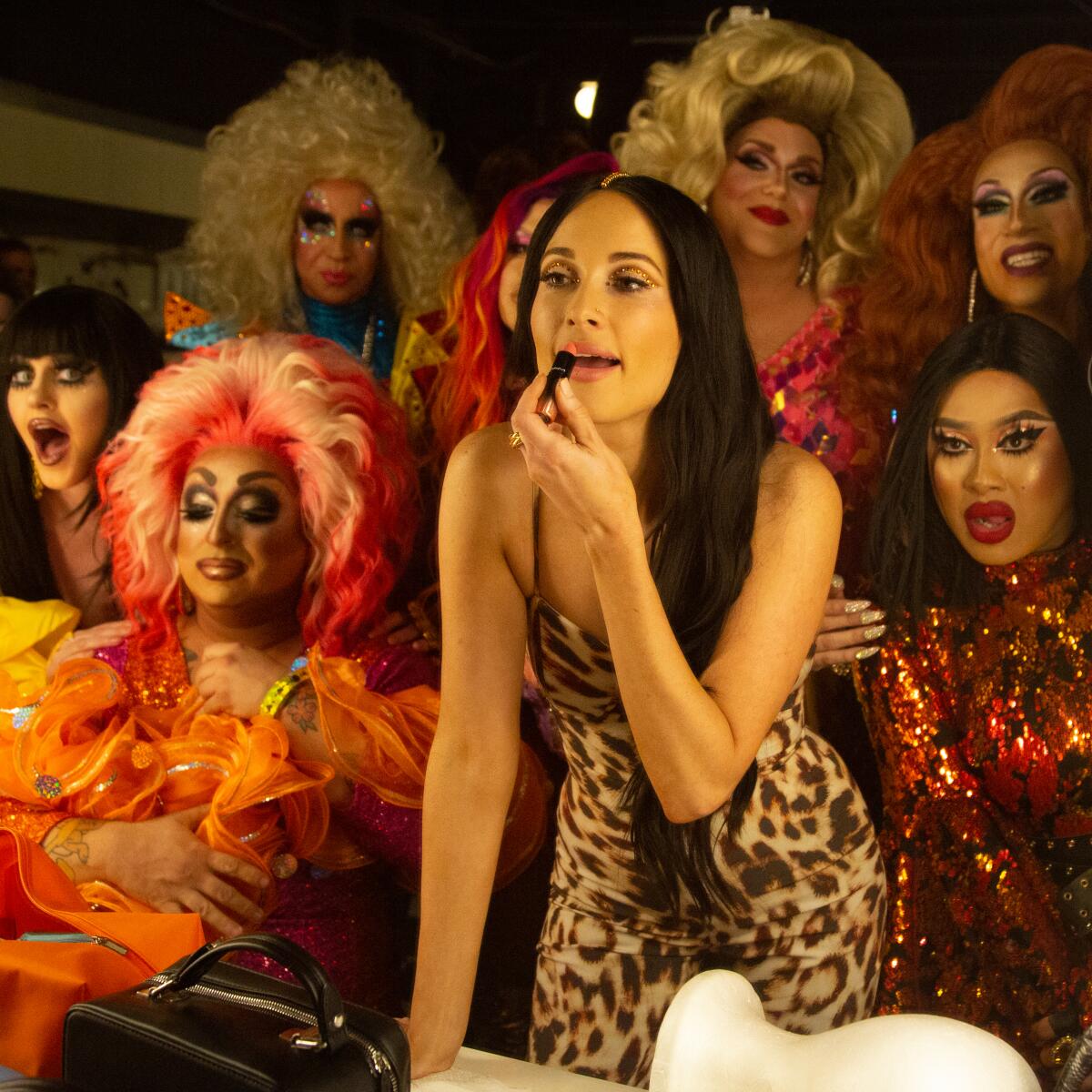
Not every pop singer who courts LGBTQ fans is doing so merely to pad their bank account. Many musicians have sustained strong ties to the community throughout their careers: from Cher, Bette Midler and Dolly Parton to, more recently, Lady Gaga, Kesha, Miley Cyrus, Robyn, Ariana Grande and Carly Rae Jepsen, to name a few. Meghan Trainor, sporting a rainbow leotard, headlined day two of the L.A. Pride Festival in June (preceded by a free concert from Paula Adbul the day before). Halsey, who identifies as bisexual, was named outstanding media artist at the 2018 GLAAD Media awards. Country singer Kacey Musgraves has been a queer favorite since the early days of her career. “Follow Your Arrow,” a track from her 2013 debut album, “Same Trailer, Different Park,” remains one of the few country hits to shout out the LGBTQ community. “Kiss lots of boys,” Musgraves sang. “Or kiss lots of girls, if that’s something you’re into.”
What separates these artists from musicians attempting to make a quick buck off the community is the mutual love expressed in their work. According to critic Rich Juzwiak of the feminist website Jezebel, the 1986 music video for Madonna’s “Open Your Heart” was formative for many young gay men who came of age in the ’80s because of a scene in which she dances with a young boy. Although her character in the video is an exotic dancer, the undertone isn’t sexual. The boy admires her like a fan idolizes his favorite diva; he even dresses in her clothes.
“It really did seem like she was speaking to a direct relationship with her gay fans,” Juzwiak says. “It was really resonant with a lot of gay men.”

Those who are held up as queer icons are anointed by their fans, not the other way around. For young men who grew up on early aughts pop divas such as Britney Spears and Christina Aguilera, many connected to these dichotomous singers because belting “...Baby One More Time” alone in their bathrooms allowed them to access a sexual confidence that felt taboo. Even though these musicians are straight, their fans felt they could better express themselves through imitating them.
“Music provides this canvas where you can find expressions that, maybe, you’ve been told are not possible for you,” says Rick Marcello, co-founder of the queer music label Flat Pop Records. “Through the words and movements of these female artists, I was seeing a lot of the things I didn’t feel like I could do in my daily life.”
But that level of intense identification has increasingly come with a responsibility for popular musicians to ethically represent communities they once stood in for. After the success of “Born This Way” in 2011, Gaga set up a foundation of the same name to create safe spaces for youth. Cyrus — who, like Gaga, says she is attracted to people of multiple genders — established the Happy Hippie Foundation in 2014 to address the crisis of LGBTQ homelessness.
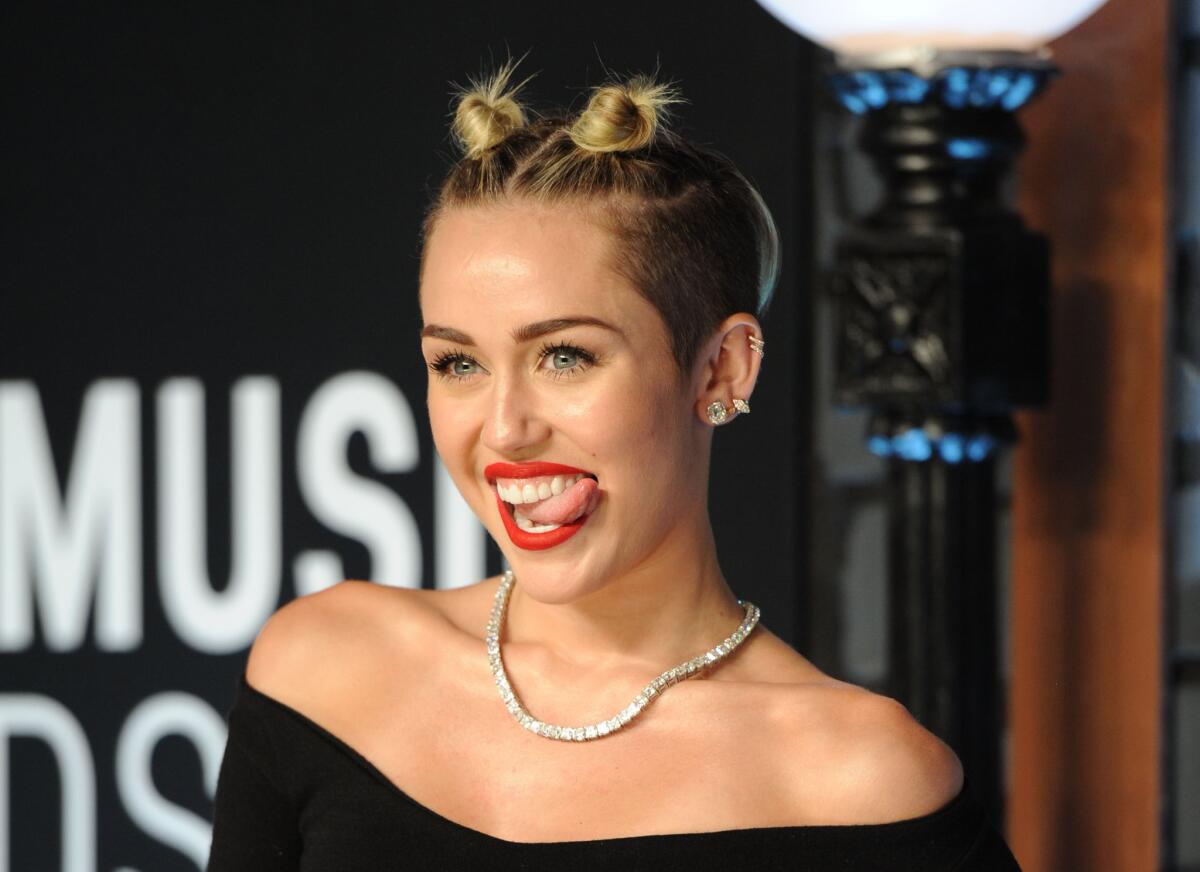
What makes this activism particularly important, many say, is that LGBTQ people celebrate musicians such as Grande and Rihanna — both of whom identify as cisgender and heterosexual — in a way they don’t actual LGBTQ musicians. The subject came up during a panel at the inaugural Billboard Pride Summit in August, when “RuPaul’s Drag Race” alum Trixie Mattel brought up the example of Swift’s frequent collaborator Todrick Hall — a gay, black man who has never had the same level of mainstream success as his more famous friend. Mattel called Hall, who released the single “Hair, Nails, Hips, Heels” in May, an “amazing lyricist.”
“Even in the gay world, we have a hard time supporting other gay people,” the drag performer told the crowd. “If a white woman with blonde hair was doing what Todrick did, gays would fall out, but because Todrick is a good-looking man of color, gays are like, ‘Whatever, he’s fine.’ ”
Many pop singers have taken note of this power imbalance by working to give a platform to up-and-coming LGBTQ artists who may lack the same level of access and privilege they navigate in the industry. Charli XCX, the British singer behind “Boom Clap,” has collaborated with queer acts including Pabllo Vittar, Troye Sivan and Christine and the Queens. For all the criticisms lobbed at “You Need to Calm Down,” its official music video is a murderer’s row of LGBTQ celebrities: from Ellen Degeneres and Laverne Cox to the entire cast of Netflix’s “Queer Eye” reboot. Even Hall made an appearance, dressed in a gender-bending bright yellow tube top and pink lipstick.
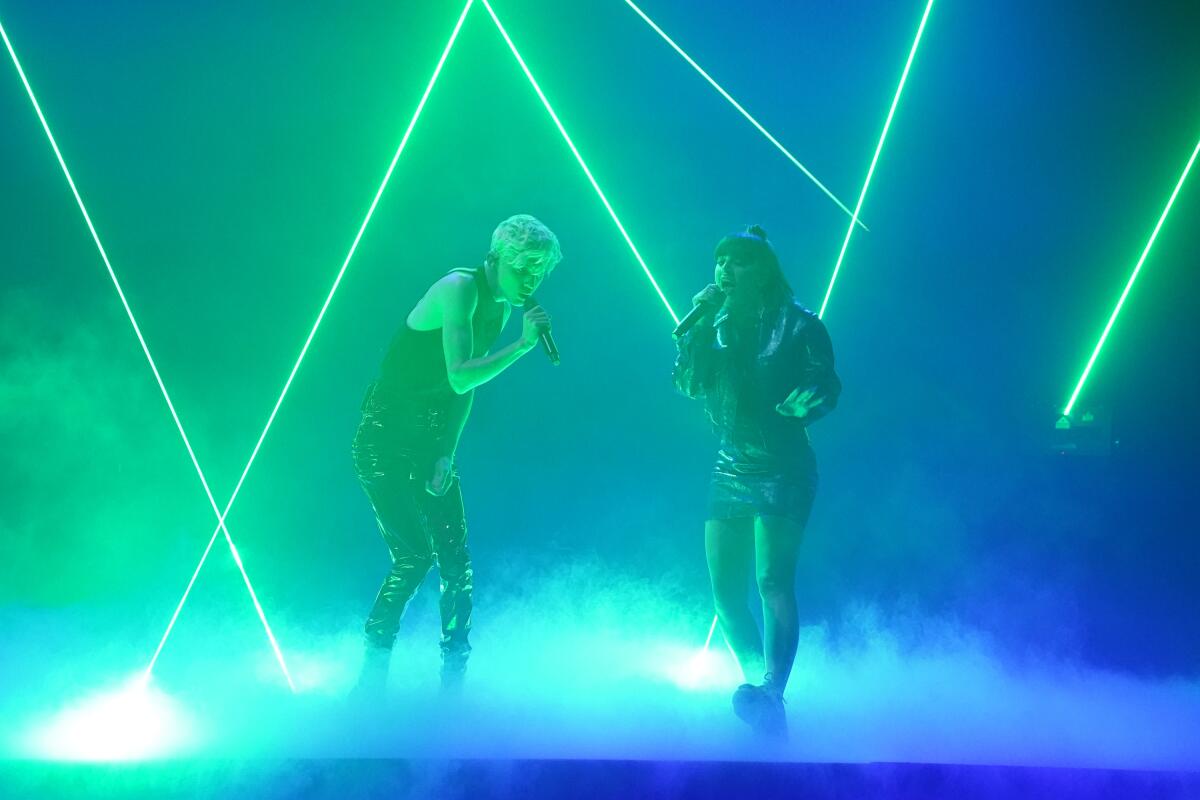
For Brooks Roach, vice president of marketing at Atlantic Records, what sets true allyship apart is that it isn’t about profiting off the community or exploiting the deep investment of LGBTQ fans. He compares the distinction to corporate advertising at Pride events, in which credit card companies and fast-food chains engage directly with the community for as long as it takes to remind potential customers to use their services. “Everyone comes to the party for a month,” Roach says, “and then they check out.”
As a gay man, Roach instead works with his artists to make sure they’re doing meaningful work with LGBTQ causes, even those that identify as straight or cisgender. He frequently consults GLAAD to ensure that performers are well-versed in the language of the LGBTQ community to better speak to their queer fans.
“It’s all about making sure that we’re not just marketing to the community, but we’re actually doing work in the community,” he says. “We’re here to participate in and support the community because they’ve given so much to our artists. We want to give back to them.”
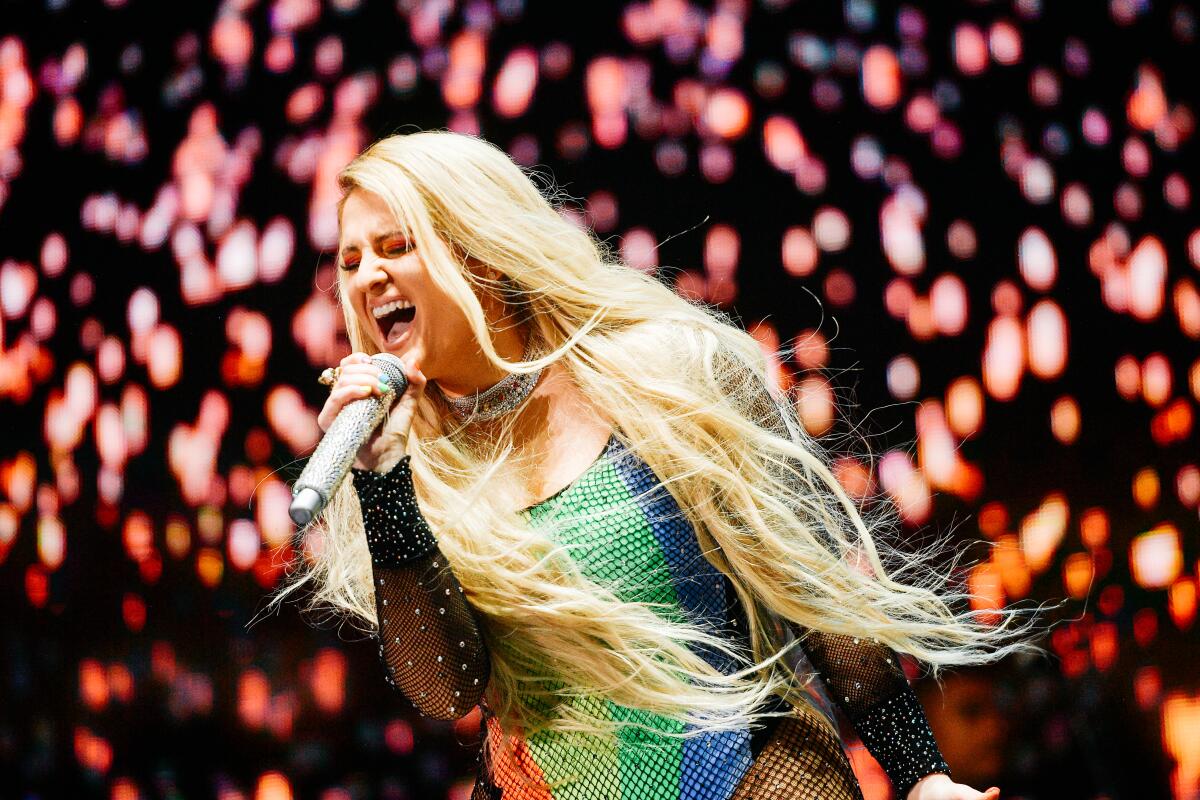
For someone such as Swift, who clearly wants to find some way to use her platform to affect change, what Roach offers is a good model for advocacy: Do the work, even when it isn’t tied, in some way, to an album release cycle.
Last year, Swift donated $113,000 to the LGBTQ nonprofit Tennessee Equality Project and encouraged her fans to support former Gov. Phil Bredesen over his anti-LGBTQ challenger, Marsha Blackburn, in the U.S. Senate race. Although she shied away from discussing politics in the 2016 election cycle, for which she was the target of much criticism, Swift wrote in an Instagram post that “I always have and always will cast my vote based on which candidate will protect and fight for the human rights I believe we all deserve in this country.”
“I believe in the fight for LGBTQ rights,” she added, “and that any form of discrimination based on sexual orientation or gender is wrong.”
After she began encouraging her followers to get out to the ballot box, an estimated 65,000 people registered to vote in the next 24 hours, celebrity activism that directly supported the community. No, it wasn’t subtle, but it was genuine allyship, and it worked.
Additional reporting by Victoria Hernandez
More to Read
The biggest entertainment stories
Get our big stories about Hollywood, film, television, music, arts, culture and more right in your inbox as soon as they publish.
You may occasionally receive promotional content from the Los Angeles Times.


